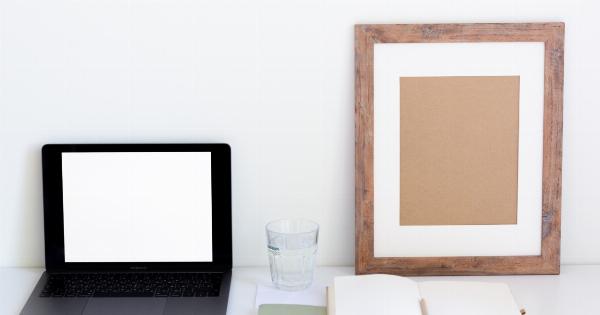Anxiety can be a debilitating condition that affects many people’s lives. It can make it hard to focus, sleep, and even enjoy the things you used to love.
If you’re struggling with anxiety, don’t worry – there are many tips and tricks you can use to help alleviate your symptoms.
1. Practice Deep Breathing
One of the most effective ways to calm anxiety is by controlling your breathing. When we become anxious, our breathing tends to become shallow and rapid. By taking deep, slow breaths, you can help calm your heart rate and relax your entire body.
Find a quiet place and sit or lie down. Inhale deeply through your nose, counting to five as you do so. Hold your breath for a few seconds, then exhale slowly through your mouth, counting to five again.
Repeat this cycle, focusing on each breath, until you feel yourself calming down.
2. Try Progressive Muscle Relaxation
Progressive muscle relaxation is a technique that involves tensing and relaxing different muscle groups in your body. It can help release tension and promote relaxation throughout your entire body, which can help lessen anxiety.
Find a comfortable place to lie down, and focus on tensing and holding each muscle group for a few seconds before releasing. Start with your toes and work your way up to your head, tensing and releasing each muscle group as you go.
3. Get Regular Exercise
Exercise is one of the best things you can do for your body and mind. Regular exercise can help reduce stress, improve mood, and boost overall physical health. It can also help reduce feelings of anxiety.
Try to get at least 30 minutes of moderate exercise each day. You can go for a walk, hit the gym, or do yoga – whatever type of exercise you prefer. The key is to find something you enjoy and stick with it.
4. Limit Caffeine and Alcohol
Caffeine and alcohol can both exacerbate anxiety symptoms. Caffeine is a stimulant that can increase heart rate and make it harder to sleep, while alcohol is a depressant that can increase feelings of sadness or fear.
Try to limit your intake of caffeine and alcohol, or avoid them altogether if possible. If you need that morning cup of coffee, try switching to decaf or a non-caffeinated alternative like herbal tea.
5. Practice Mindfulness Meditation
Mindfulness meditation is a type of meditation that involves focusing on the present moment and accepting your thoughts and feelings without judgment. It can help improve mood, reduce stress, and lessen anxiety.
Find a quiet place to sit comfortably. Focus on your breath as you inhale and exhale, allowing thoughts to pass by without dwelling on them. If your mind wanders, simply bring your focus back to your breath.
6. Get Enough Sleep
Sleep is an essential part of overall health, and lack of sleep can make anxiety symptoms worse. Try to get at least 7-8 hours of sleep each night, and establish a regular sleep routine to help promote restful sleep.
Avoid using screens before bed, as the blue light can interfere with your body’s natural sleep rhythms. Try reading a book or taking a warm bath instead.
7. Talk to a Therapist
If you’re struggling with anxiety or finding it difficult to manage your symptoms, it may be helpful to talk to a therapist.
A therapist can help you identify the root causes of your anxiety and provide you with tools and techniques to manage your symptoms.
There are many different types of therapy available, including cognitive-behavioral therapy (CBT), exposure therapy, and mindfulness-based therapies. Talk to your doctor or mental health provider to find a therapist who can help you.
8. Limit Social Media and News
Social media and the news can be major sources of stress and anxiety. News stories can be overwhelming and trigger feelings of fear or sadness, while social media can lead to feelings of inadequacy or FOMO (fear of missing out).
Try to limit your exposure to social media and news, especially before bed or during times when you’re feeling overwhelmed. Instead, focus on positive activities like hobbies or spending time with loved ones.
9. Practice Self-Care
Self-care is an important part of managing anxiety. Take time for yourself each day to do something you enjoy, like reading a book, taking a bath, or going for a walk.
Self-care also includes things like eating a healthy diet, staying hydrated, and practicing good hygiene. When we take care of our bodies and minds, we’re better equipped to handle stress and anxiety.
10. Remember You’re Not Alone
Finally, remember that you’re not alone. Anxiety is a common condition that affects millions of people worldwide.
Don’t be afraid to reach out for help, whether that means talking to a friend or family member, seeking professional treatment, or joining a support group.
With the right tools and support, you can manage your anxiety and live a fulfilling life.































